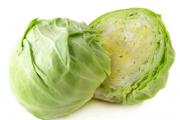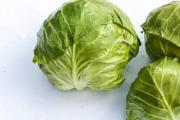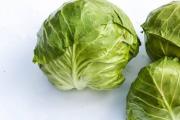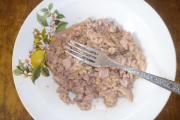Why does the bread in the refrigerator not grow moldy? How to store bread: in the refrigerator, in a bread bin or in a bag? Storing bread in a plastic or paper bag
Hungry times for our country are in the past, but people, for various reasons, still sometimes buy food for future use. Even bread is sometimes purchased by citizens in excessive quantities, and if so, they will want to know how to store bread in the refrigerator and is it worth doing at all?
How much and how to properly store bread in the refrigerator?
Why is it worth keeping bread in the refrigerator?
First of all, you need to understand that you need to store bread in the refrigerator only if you bought it in excess. In general, experts say that now there is no point in gathering provisions for 10 years in advance, including bread. Compare your feelings: which bread is better - stale or fresh, and at what speed does one and the other disappear from the kitchen? But let's leave the amount of food on the conscience of people. Let's talk about whether bread is kept in the refrigerator? Of course, yes. But they follow some rules.
1. Bread should not be put in the refrigerator just like that. It must be put in a plastic bag with holes, in a paper bag, wrapped in a cloth (choose one of the methods). At the same time, the last two materials (paper and cloth) are preferable to polyethylene, because they protect the bread from the smells of other products.
2. The term and method of storage. Bread can lie directly in the refrigerator for three weeks before spoiling. In the freezer - a month.
3. Do not put in the refrigerator bread that has already become moldy. The fungus will eat other foods as well.
Can I store bread in the refrigerator? Why is it better to store bread in a bread bin?
It's understandable with a refrigerator, but it turns into a bread bin only when necessary. How to choose the right bread storage? Here are some simple rules:
1. The bread box must be made of steel. The metal leaves the bread warm and does not allow foreign odors to pass through. Of course, there are both plastic and wooden bread bins, but they lose to their steel comrades: plastic wears out quickly, and wood quickly damp.
2. In a good bread bin, black and white bread are always separated. Storing black and white together shortens the life of white bread. Such is the wisdom. If a person has already made a mistake and bought an ordinary bread box, then he will help out a polyethylene bag with holes, in which you need to put each loaf.
3. How to properly care for the bread bin. There is also nothing difficult here: remove the crumbs from it every day. It is essential to keep the bread bin clean and wash it once a week.
In other words, store your bread wherever you want, but keep it clean and tidy.
Fresh, soft bread is an essential part of a meal in any home. Bread was especially revered in Russia, some traditions in this regard have survived to this day. Throwing away bread is considered bad form. Modern baked goods, especially in-store baked goods, consist of many components that increase the fluffiness of the crumb, give the crust an exquisite taste, but such bread is stored for a very short time. A warm, fragrant baguette bought in the evening becomes a biscuit by the morning. How to store bread correctly and can it be stored in the refrigerator?
There is no unambiguous answer to this question, since there are many opinions both "for" and "against" this storage method.
Reasons "against"
The controversy is caused by the facts, which should be paid attention to and taken into account:
- Refrigerators retain various odors well, this is especially noticeable when storing fish and meat. The bread will quickly take on any bright odor inside the refrigerator.
- Mold is caused by high levels of moisture, which is why hermetically sealed bread will grow moldy even in the refrigerator.
- To store baked goods in the refrigerator, you need a certain amount of space. For the most part, bread is cooked with yeast, and when it is close to other foods, it can speed up the spoilage process.
In general, you can store bread in the refrigerator, only in one area with products without pronounced odors and not perishable. For long-term softness, use cloth or paper as a wrap.

You cannot store bread in the refrigerator if there is no way to isolate it from annoying odors. For bakery products, the balance of moisture is important, so they should not be wrapped tightly in polyethylene. Although outside the refrigerator, it is in a bag with small holes that bread will remain for a long time.
The main factors contributing to bread spoilage are high humidity and odors.

When answering the question "why is bread stored in the refrigerator", it is important to note the following:
- If there are no other ways to keep it fresh for 3-4 days.
- A large number of items need to be stored.
- Storage conditions meet all the rules and requirements.
Another question that housewives often ask, for whom everything goes for the future, is bread stored in the refrigerator if it has already begun to deteriorate? Of course, you can slow down the growth of mold by putting bread in the refrigerator. But in this case, there is a great risk of infecting with mold all the products located next to the spoiled bun.
How to store baked goods in the refrigerator
An important rule of long-term preservation of the freshness of bread in the refrigerator is the environment and packaging.
- Pack your bread in breathable material, paper, or a bag with holes.
- Do not place bread on the same shelf as fruits, vegetables, cheeses and sausages.
- Slice the bread from the middle, and for storage, join the two halves of the loaf with the cut to each other.
- In order to slow down the spread of fungus, mold, put a gauze bag with salt in the package to the roll.

Large quantities of bread are best stored in the freezer. For this, the loaf is cut into usual pieces and sealed, divided into portions. If necessary, take out one portion an hour and a half before the meal and defrost it at room temperature. Paper, cellophane or foil can be used as the material for the wrapper.

In conclusion, I would like to note that the most effective way of storing bread has long been considered to be bins made of birch bark or juniper. These materials have a vivid disinfection effect, therefore all bakery products are stored in such a bread bin for a long time and they do not care about mold.
Not every meal has a place in the fridge. The seven exiles from the permafrost are in front of you.
BREAD
 Bread belongs I mean those food supplies that are never stored in the refrigerator. Staying in it will not prolong the life of the bread, but will only help it dry out faster and absorb all the smells from there. The best way to store bread is at room temperature, and even then it should be kept for no more than four days. If the loaf is large enough, and you definitely will not have time to eat it during this time, then it is better to cut the desired piece from it, and freeze the rest of it.
Bread belongs I mean those food supplies that are never stored in the refrigerator. Staying in it will not prolong the life of the bread, but will only help it dry out faster and absorb all the smells from there. The best way to store bread is at room temperature, and even then it should be kept for no more than four days. If the loaf is large enough, and you definitely will not have time to eat it during this time, then it is better to cut the desired piece from it, and freeze the rest of it.
GARLIC
Garlic cannot stand cold at all. There is absolutely no need to refrigerate it. He will calmly spend in a dry place for a couple of months. A prerequisite is ventilation, which will keep the garlic fresh for much longer.
SPICY SAUCE
 It is believed that all sauces and seasonings should be stored exclusively in the refrigerator. However, ingredients such as vinegar, sugar and salt are excellent preservatives. Hot sauce doesn't need to be refrigerated either. In the pantry, he will be able to stand for three years, therefore, he does not need low temperatures. Moreover, they will not improve his taste.
It is believed that all sauces and seasonings should be stored exclusively in the refrigerator. However, ingredients such as vinegar, sugar and salt are excellent preservatives. Hot sauce doesn't need to be refrigerated either. In the pantry, he will be able to stand for three years, therefore, he does not need low temperatures. Moreover, they will not improve his taste.
POTATO
 It definitely doesn't belong in the fridge. The main reason is the low temperature converts the potato starch into sugar. Even a temperature of +7 degrees will harm potatoes. And cooking will not hide the change in its taste and consistency. The best place to store potatoes is in a paper bag in the closet.
It definitely doesn't belong in the fridge. The main reason is the low temperature converts the potato starch into sugar. Even a temperature of +7 degrees will harm potatoes. And cooking will not hide the change in its taste and consistency. The best place to store potatoes is in a paper bag in the closet.
TOMATOES
 The refrigerator turns tomatoes into something inedible. They deteriorate the more the longer they are kept in the cold. Of course, you can store them there, but the taste will not be the same as before. Tomatoes love warmth, so it's best to keep them just on the table, at room temperature. However, tomatoes should be protected from direct sunlight.
The refrigerator turns tomatoes into something inedible. They deteriorate the more the longer they are kept in the cold. Of course, you can store them there, but the taste will not be the same as before. Tomatoes love warmth, so it's best to keep them just on the table, at room temperature. However, tomatoes should be protected from direct sunlight.
ONION
It is best to store onions in nets to promote air circulation. This will allow you to keep it for a long time. In the refrigerator, in the event of insufficient air circulation and dampness, onions will rot very quickly. You should also know that it keeps better in the dark, because exposure to light changes its taste. However, storage near potatoes is not recommended. The gases and moisture emanating from it will make your onions rot faster at times.
COFFEE
 Many people are convinced that the refrigerator is the best place for coffee. In fact, there is no place for him at all. Refrigeration will adversely affect the quality and taste of the coffee. In addition, the coffee itself, which has a strong enough smell, can change the smell and taste of other products.
Many people are convinced that the refrigerator is the best place for coffee. In fact, there is no place for him at all. Refrigeration will adversely affect the quality and taste of the coffee. In addition, the coffee itself, which has a strong enough smell, can change the smell and taste of other products.
The refrigerator allows housewives to keep food fresh for a while. We cannot imagine our life without this unit - we store everything there, from bakery products to alcoholic beverages. But not all products are suitable for the temperature regime maintained in the refrigerator compartment of a household appliance. "Popular about health" will help you figure out if honey, dough, bread and wine can be stored in the refrigerator.
Can honey be stored in the refrigerator or not?
Many people think that if honey has antimicrobial properties, then there is no need to worry about its safety, it will not deteriorate even at room temperature. But time passes and at room temperature it begins to change color and acquires a layered structure. In the lower part of the container, honey becomes dark, thick and sugary, and in the upper part it becomes liquid and light. What does this mean? When exposed to high temperatures, the polysaccharides contained in honey are destroyed, and it gradually loses its beneficial properties.
At what temperature is it recommended to store the beekeeping product? The range is quite wide - from -6 degrees to +20. In apartments, the thermometer is usually higher than the specified mark, so honey deteriorates. Can honey be kept in the refrigerator? Yes, you can, but you need to follow certain recommendations:
The honey is placed in a clean glass container.
Close the product tightly with a lid.
In the refrigerator compartment, the temperature is about +7 degrees, it is dark there. These are ideal conditions for storing honey. The only thing that can adversely affect the quality of the product is odors and moisture, which is why the jar of honey must be tightly closed with a lid.
Can the dough be stored in the refrigerator?
If you are not very fond of tinkering with the dough, then, for sure, you are preparing it for future use. Many housewives do this. Having used a part for pies or buns, the rest must be saved somehow. Having sent the yeast dough to the refrigerator, you need to know that in the cold the fermentation process does not stop completely, it only slows down. This means that the product can deteriorate, acquire an unpleasant odor and turn sour. So can the dough be kept in the refrigerator?
You can, but not too long. If it is rich, with the addition of yeast, then you can leave the unused part in the refrigerator compartment for two days, no longer. If after two days you still haven't baked any buns or pies, then it's best to put it in the freezer. Frozen dough is stored for a long time - more than two months. If necessary, you can defrost it, then it will not lose its properties. Put it in a plastic bag, release all the air, wrap it tightly and put it in the quick freezer for 2 hours. In the future, you should transfer the dough to a regular freezer.
Bread is often moldy at room temperature, which is why some people store it in the refrigerator. There it can remain fresh for up to 6-7 days. However, the refrigerator compartment has high humidity and odors from the food. The bread is porous and quickly absorbs them. To prevent it from being saturated with the aromas of herring, garlic or other products, you must place the loaf or loaf in a paper bag and wrap it tightly. In this form, the bread will remain fresh for a long time, it will be protected from excess moisture and from foreign odors.
But what if you need to store bread for a long, long time? In this case, it is also frozen. The loaf will stay in the freezer for up to three months. To use the bread again later, just put it in the room, wait until it is completely defrosted, and then heat it up a little in the oven or microwave.

Is it possible to save wine in the refrigerator?
Many people, especially those who recently bought a refrigerator, will think that wine can be stored in it. Still, in some models there is a special shelf inside for storing bottles. But, alas ... Wine is very capricious, especially expensive. You need to treat it with care and follow the storage rules exactly, otherwise the drink will quickly lose its exquisite taste and aroma. The temperature regime of a household refrigerator is completely unsuitable for storing wine. This product should be kept in conditions where the mercury column fluctuates between + 12 ... + 15 degrees. In the refrigerator compartment, the temperature is always below the specified mark. In addition, wine is also capable of absorbing smells from the environment, and this is detrimental to its taste and aroma.
And when storing wine, it is necessary that the contents of the bottle are not shaken. This drink must be constantly at rest, and, moreover, in a horizontal position. That is why in restaurants and bars, bottles with wine are stored on special stands in a recumbent position. This keeps the cork moist, so it doesn't dry out and clogs the neck tightly. A dark cellar or a special wine refrigerator is ideal for storing wine. Today there are many models of units in which different temperatures are maintained on the shelves for bottles - suitable for storage, for quickly cooling the drink before drinking and for other purposes.
Knowing which foods can be stored in the refrigerator for a long time, and which ones cannot, is very important. Now you know that honey deteriorates at room temperature, just as bread can become moldy after a few days, this product will be better stored in a cool place. It is better to send the dough, which will not be needed for a long time, to the freezer, and the wine should be properly stored in a dark cellar.
“Bread is the head of everything”, “Bread and water are healthy food”, “There is no lunch without bread” - Russian proverbs about bread demonstrate a respectful and reverent attitude towards this valuable product. Bread was called "father" and "breadwinner", and a house that did not smell of baked goods was considered poor. Bread was worshiped like the sun, and in ancient times it replaced gold. People have always carefully kept bread, a symbol of prosperity and prosperity, trying to prevent it from becoming moldy and stale, since it was considered a great sin to throw away the “priest” and the “breadwinner”. Many ways to properly store bread came to us from Ancient Russia, so why not use them?
How to properly store bread at home?
Our ancestors wrapped bread in a linen towel or canvas cloth - so it retained its freshness and taste for a long time. Some housewives knew special secrets of how best to store bread so that not a single crumb was lost. They would place the loaf in a white cloth or paper to keep it soft and tender all week - so every family always had fresh baked goods without the daily hassle of the oven.
- A great way is to use a plastic bag with holes, but it is not recommended to use the bag a second time. The bread, wrapped in cellophane, remains soft for five days.
- Fresh baked goods can be stored in a tightly closed saucepan if you put an apple in it - in this case, fragrant and fluffy buns will delight you for at least 2-3 days.
- Cutting bread from the edge, but from the middle, and then cutting the two halves together is one of the most effective ways to keep bread fresh and tasty.
How to store bread in a bread bin?
 Our grandmothers knew where to store on the kitchen - of course, in a bread bin, since no plastic bags can replace this valuable kitchen device. Bread boxes are made of plastic, wood and stainless steel, and the best material for them is metal, since it has good thermal properties and does not absorb odors. Plastic is not durable, and a wooden bread bin must be carefully looked after so that it does not get damp.
Our grandmothers knew where to store on the kitchen - of course, in a bread bin, since no plastic bags can replace this valuable kitchen device. Bread boxes are made of plastic, wood and stainless steel, and the best material for them is metal, since it has good thermal properties and does not absorb odors. Plastic is not durable, and a wooden bread bin must be carefully looked after so that it does not get damp.
In a good bread bin, baked goods can be stored for a week if white and black bread are kept separately, since rye loaves have a higher moisture content. For this reason, it is recommended to buy a bread bin with two or three sections, and if you have a regular model, then keep the bread in plastic bags. It is advisable to remove the crumbs from the bread bin every day, and once a week it should be washed and dried well. Putting a small lump of sugar, an apple wedge or a peeled potato in the bread bin can help reduce moisture and extend the life of the bread.
Can I store bread in the refrigerator?

If you bought a lot or need to go away for a few days, you can safely leave the bread in the refrigerator. At low temperatures, baked goods are not susceptible to mold and stays fresh for a long time, if you follow some rules.
In the refrigerator, it is better to store bread in a plastic bag with holes, in a cloth bag or paper packaging, which reliably protects food from foreign aromas and maintains optimal humidity. If you put a pinch of salt in gauze in each bag, it will not "catch" mold bacteria, even if the refrigerator is turned off. For the freezer, it is better to cut the bread into pieces and pack it in foil portions. How much bread can be stored in the refrigerator depends on the temperature - it will last well for a month in the freezer, and about three weeks on the top shelf of the refrigerator.
It is strongly not recommended to store baked goods in the refrigerator that have already begun to deteriorate, otherwise the fungus will spread to other products. Also, do not put hot baked goods in the refrigerator, as the compressor may fail.
It is best to store bread wrapped in a linen napkin in a juniper or birch bark bread bin, as these materials are excellent natural antiseptics. Try not to buy or bake bread for future use, and then there will be no problems where to get fresh and tasty pastries from every day. Well, if the bread is still stale, feed it to the birds or prepare croutons - nothing should be lost on the farm!















